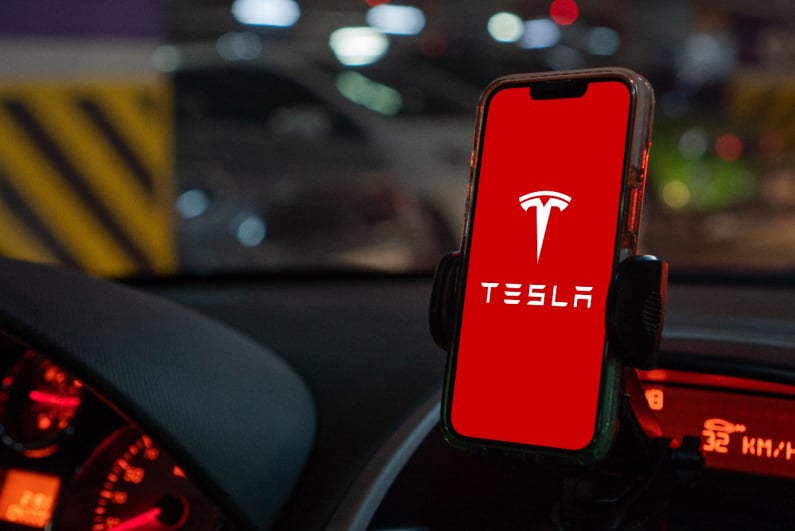Making a change
Loot boxes have proven a matter of contention for some time in the UK, with critics claiming that they are akin to gambling. Now, one content creator with a strong following said he wants to make a “real change” regarding their regulation.
Social media influencer and content creator SAF Cal has started a campaign with the aim of getting loot boxes, such as FC Packs used in soccer video game EA Sports FC 24, regulated like gambling. He shared a video to his 280,000 X followers on Thursday explaining the reasons for the movement:
As SAF Cal, real name Callum Dornan, explains, loot boxes are not currently regulated in the UK. The influencer makes clear that he isn’t aiming to ban loot boxes altogether, but instead wants to prevent those under the age of 18 from accessing them through legislation.
loot boxes can be a gateway into other forms of gambling.”
“We are exposing young people to gambling mechanisms,” SAF Cal explained, adding: “There is scientific evidence that loot boxes can be a gateway into other forms of gambling.”
The influencer also wants to introduce a cap on how much people can spend on loot boxes. Referring to the points used to acquire loot boxes in EA Sports FC 24, SAF Cal said he has a “feeling” that people overspend on FC Points without realizing how much they’ve spent.
Evidence of harm
In announcing the campaign, Dornan made it clear that he doesn’t intend to start “a war on EA (Electronic Arts),” the owner of the EA Sports FC brand. Instead, he said he wants to protect young people and other vulnerable players from the harms associated with addiction to loot boxes.
“There are so many people that are addicted to FC Points, it is chronically under-reported,” SF Cal stated in the conclusion to his video. In other posts to his page, the creator has shared testimonials supposedly written by those addicted to buying FC Points:
One such addict claimed that they “spent thousands on FIFA points (the former iteration of FC Points)” when they first turned 16. One other person said that they had probably spent more than £30,000 ($37,753) on FC Points in total, while another said that after spending so much on FC Points they had “resorted to using credit cards to survive.”
had to snap their bank card after spending £7,000 ($8,809)
Other addicts have messaged Dornan specifically asking for any tips on their problem. Writing in January, one person said they had to snap their bank card after spending £7,000 ($8,809) in 2024 already:
Referring to the rampant addiction across the country, Dornan said: “At some point in the future, I am under no illusion that it will come out. People will realize how much people are being affected by it. I don’t want to be one of the people that sat there and did nothing.”
The loot box debate
SAF Cal isn’t the first to take issue with loot boxes. The matter is a controversial one across the globe.
In the most recent development in the UK, UK Interactive Entertainment released new loot box guidelines regarding young people last year. The body, which is the main video games industry trade body in the region, said that anyone under 18 years old must get parental consent before accessing loot boxes. Video games also have to clearly disclose when a title contains the in-game feature.
Some EU nations have taken a particularly strict approach to loot boxes. In 2018, the Belgian Gaming Commission decided that they constitute gambling if purchased by real-world money. As a result, many major companies decided to remove loot boxes from the local version of their games or left the market completely.
a €10m ($10.9m) fine for FIFA owner EA for offering gambling without a license
The Netherlands took a similar approach in 2018, determining that loot boxes were gambling. This resulted in a €10m ($10.9m) fine for FIFA owner EA for offering gambling without a license. However, a Dutch court overturned this ruling in 2022, arguing that Ultimate Team packs are part of a wider “game of skill” and are used for “game participation.”
EA is facing a similar case in Canada after a plaintiff claimed that loot boxes in its games constituted unlawful gambling. A judge has rejected this claim, but a second aspect to the lawsuit is still unsettled. Mark Sutherland accused the company of “deceptive and unconscionable acts or practices,” and is claiming for all residents in British Columbia who have paid for loot boxes in more than 70 EA games since 2008.
Elsewhere, Australia lawmakers passed new laws last year reclassifying games with loot boxes as “M” for mature, or for players 15 years and above. The laws will come into effect in September this year, so it will not impact games already released with loot boxes.




